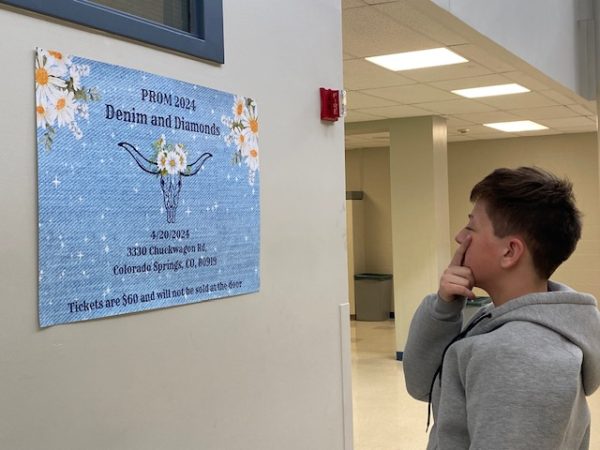Holly Jolly Home Invader: Why Santa is Unethical
The holiday season is here.
Soon the halls will be decked with boughs of holly and every available surface will be taken up with the greens and reds of Christmas spirit.
It’s a tradition; everyone knows that. Christmas spirit has been around for decades, and no one really questions what people do to get in spirit, even if those traditions may be a little…strange.
Santa Clause is an example of one of these traditions. Santa Clause is a modern variation on a monk named St. Nicholas, and has been around for hundreds of years.
Nowadays, Santa supposedly comes into our houses on Christmas night and brings kids gifts. Most people moved on from this idea in their early years, discovering that Santa Clause is not, in fact, real.
The lie of Santa Clause is maintained through the younger years of many, so this raises the question: Is Santa Clause a healthy lie to tell children? Or is he just a holly-jolly, home-invading lie?
Math teacher Mindy Hall said, “I think the spirit of the holidays should ultimately revolve around spending time with your family…I don’t think Santa Clause contributes to that at all.”
To Hall, Santa Clause is a form of normalizing home invasion. “My daughter asked the other day if she could write a letter to Santa Clause, but I told her ‘I tell you this every year, Santa is not real,’ and they said ‘We know,'” she added.
Although her children know that old St. Nick is nothing but a fairy tale, they choose to play the game anyway.
However, this does not excuse the parents who use Santa Clause as a good behavior bargaining chip.
“I have three kids, [ages] ten, thirteen, and eight,” said science teacher Scott Newell. “[My oldest] is thirteen and we’re still lying to him.” Newell uses Santa to influence good behavior with his children, yet he holds a very positive outlook on it.
“Santa brings out in the best of us. He doesn’t have to be real in order to carry out the spirit of the holiday,” said Newell. “It’s something that all [parents] can easily grab onto to… motivate [their children].”
For Newell, it isn’t just about the good behavior of his children, it’s also about the spirit of the holiday, and Santa is a big part of that.
Surprisingly, many seem to have never believed in Kris Kringle in the first place. In an online poll, twenty one people voted that they had never believed in Santa. Many answers on the poll resonated with a similar energy, explaining when they discovered Santa doesn’t exist. For those who answered, it was often by accident or from friends they heard the truth. Santa seems to be a game the youth is tricked into believing early on, and the rest is maintained by themselves.
“My mom sat me down at my favorite restaurant and said ‘I’m Santa,’ when I was seven,” responded one student on the poll.
When parents tell their children about Santa Clause, it may enforce holiday spirit, but the cost of doing so is too great. Although the idea’s seed comes from the parent, it is sprouted by the child into an unrealistic, false story. The fantasy is maintained by their children, and it spirals out into something that crushes holiday spirit after the lie is over.
The way our society uses Santa Clause is unethical. But that does not mean that the concept of his character is as well. Christmas spirit should be about family and loved ones, relatives and good, shared food. The way Santa Clause is used today values material possession over the core values Christmas is founded upon.
No matter the use or the role that Santa plays in children’s lives, he will continue to be the home-invading, dream-crushing, holiday-spirit-filled jolly man that we all know and used to love.

Hello! I'm Logan, and I'm an journalist for the Jetstream Journal. I love reading, writing, and solving Rubik's Cubes. I'm excited to write stories for...








